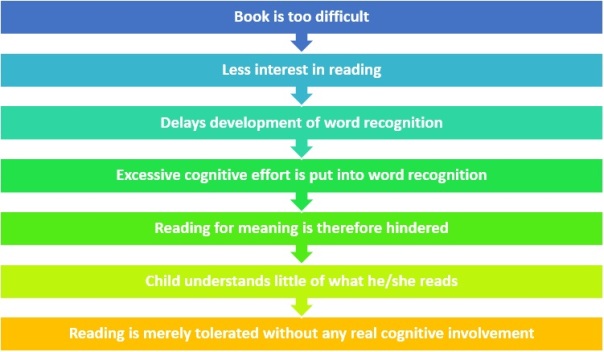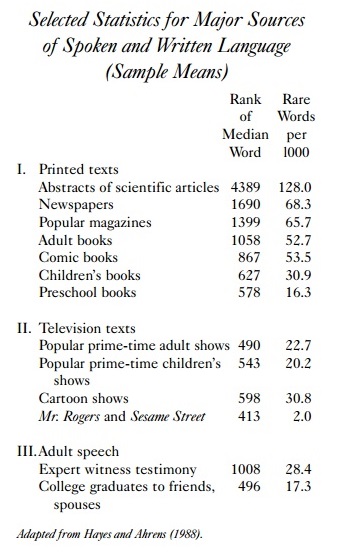
“Why bother reading?” is a question I’m asked occasionally by students, and “reading makes you smarter” is my standard response. This week, I want to expand on this fact and give some evidence for reading being a major contributor not only to academic success, but to success in many other aspects of life as well.
Reading improves your IQ and EQ
Firstly, there’s convincing evidence by Mar et al., (2009) that people who read fiction have greater ability to understand others’ emotions, emphasise with them and view the world from their perspective. In other words, reading increases your emotional quotient (EQ).
Second, there’s convincing evidence that reading increases your vocabulary. Cunningham & Stanovich (2001) penned an excellent analysis that includes evidence from many other studies that a person’s vocabulary is increased fastest by reading, particularly reading books outside of school hours, than by learning lists of vocabulary on their own.
Improving your EQ has obvious benefits. But what are the advantages of increasing your vocabulary? Increased vocabulary has been shown to be linked with increased intelligence and socioeconomic status. Even if the link is correlative and not causative, people will still benefit from the perceived intelligence that an increased vocabulary brings about.
Furthermore, Olson, D. R. (1986) writes:
It is easy to show that sensitivity to the subtleties of language are crucial to some undertakings. A person who does not clearly see the difference between an expression of intention and a promise or between a mistake and an accident, or between a falsehood and a lie, should avoid a legal career or, for that matter, a theological one.
It has also been widely argued in the literature that reading can increase vocabulary faster than verbal interactions because our written vocabulary is so much more diverse than our spoken vocabulary.
What type of reading should I be doing?
Deep reading is the most effective way to increase your IQ and EQ.
Deep reading involves:
- decreased physical activity while reading
- zero distraction (or immunity to distraction: being ‘in the zone’)
- reading for extensive periods of time: many hours in one sitting
- processing the things you read in a meta-cognitive way, e.g. writing book reviews or making notes as you read
Deep reading is vigorous exercise from the brain. It increases our capacity for empathy in real life. Deep reading is slow, immersive, rich in sensory detail and emotional and moral complexity, and is very different from the kind of reading we do on the internet or even in school. Deep reading is a distinctive experience, different in kind from the mere decoding of words. Victor Nell reported in 1988 that deep readers read their favourite pages more slowly than average, and that deep reading is usually accompanied by a significant decrease in physiological activity. He even noted that deep reading sets the reader into a psychological state akin to a hypnotic trance.
“…deep reading sets the reader into a psychological state akin to a hypnotic trance.” – Victor Nell (1988)
Can I use an iPad or an e-reader?
Not for deep reading, no. Use an e-reader or an iPad for reading magazines and news articles only. Not only are electronic devices prone to distracting you (under the ruse of ‘multitasking’), but studies have shown that readers who read books on electronic devices:
- have lower reading ability
- enjoy reading less
- leave lower reviews on Amazon.com than for hardback versions of the same book
While reading can be done on electronic devices, deep reading needs to be done from paper. Not only are printed books free of popup notifications and advertisements, they also kinder on your eyes (because they’re not backlit) and lend themselves better to being highlighted and annotated in the margins if required.
Read more about 10 reasons print books are better than e-books on Huffpost
I hate reading. Why do I hate reading?
Here’s a flowchart derived from Cunningham & Stanovich that explains why some people hate reading. Their premise is that people who hate reading have been introduced to books that are too difficult so the excessive focus on the meaning of individual words distracts people from the meaning of paragraphs or chapters as a whole.

It’s therefore important to choose books of an appropriate reading level.
So what should I read (or, ‘deep read’)?
Choose a genre that matches your interests and a medium that matches your reading level. The material you read should be not too easy and not too difficult. Here’s a rough guide to the difficulty level of different types of media.

Occasionally, try to expand your horizons by challenging yourself to read something you wouldn’t normally read. Here are some great ways to read outside your comfort zone:
- swap books with a friend;
- get books recommended to you by a teacher, tutor or a family member;
- participate in a book club, in which you read a new book each month or fortnight.
How much should I read each day?
Aim to read 3,300,000 words per year. That equates to about one book per week, which puts you above 95% of the adult population.
In 2012, when I realised I wasn’t reading enough, I decided to read a book every two days. I posted all the reviews online as a way of holding myself accountable to reading them thoroughly and deeply. Reading this much was difficult and time-consuming at first, but, just like sports, I become faster and more proficient as I read more books.

Read one book per week and review it online to keep yourself accountable.
Conclusion
Get involved in deep reading by reading one book per week and posting the reviews online. Here’s your new reading process for the new year.

As a life-long “deep” reader, I agree with every word!
LikeLike
Great news! I’m finding that the students with natural ‘reading’ habits are succeeding academically much more easily than those who ‘naturally’ do other things – e.g. television, browsing the web or sports.
I’m now telling students to make “reading” (particularly the above flowchart) their “default activity” when they have nothing else to do.
LikeLike
I’m only one data point, but it made both my school career and my work career much easier. Especially work, since all the foundation and theory and “experience” from all that reading made me very adaptable and able to move between different domains. In fact, during the recent tough economic and work times here in the USA I never worried about finding work.
Knowing stuff — lots of stuff — pays off!
LikeLike
Reblogged this on Logos con carne and commented:
So what are the odds of reading two posts in short succession, both of which just demand to be reblogged? As I commented on the original post, speaking as a life-long deep reader, I agree with every word.
LikeLike
I’m a deep reader too. But I think some clarification is in order. Not all electronic devices are the same. An Amazon Kindle is quite different from an iPad or a smartphone. It’s designed to be a reading device, so it doesn’t distract with adverts, games, etc, and it’s not backlit, but uses e-ink, making the reading experience much closer to a paper book. Personally, I prefer paperbacks, but I am happy to read a Kindle.
LikeLike
Hi there! I liked this post very much. Do you mind if I cite it in one of my posts? I am creating a second blog.
LikeLike
Hey! I relate to every bit of the importance of reading. Well, with the mode of reading I will go for “traditional” book any day. The though of holding a real book in hand urges me on.
LikeLike